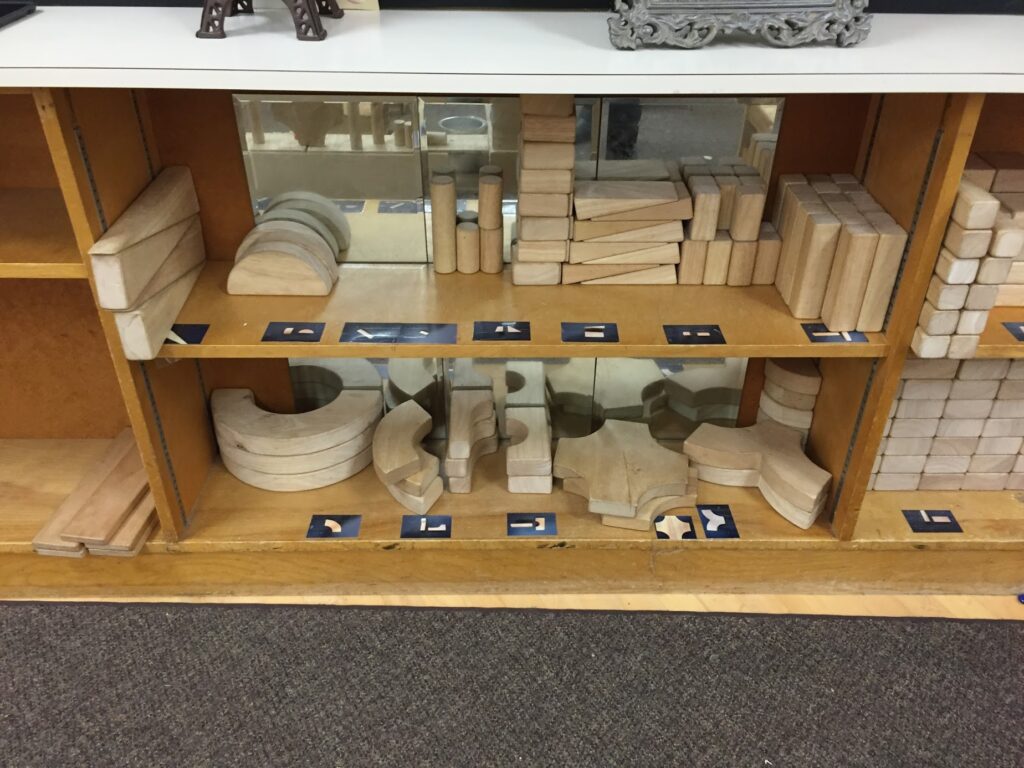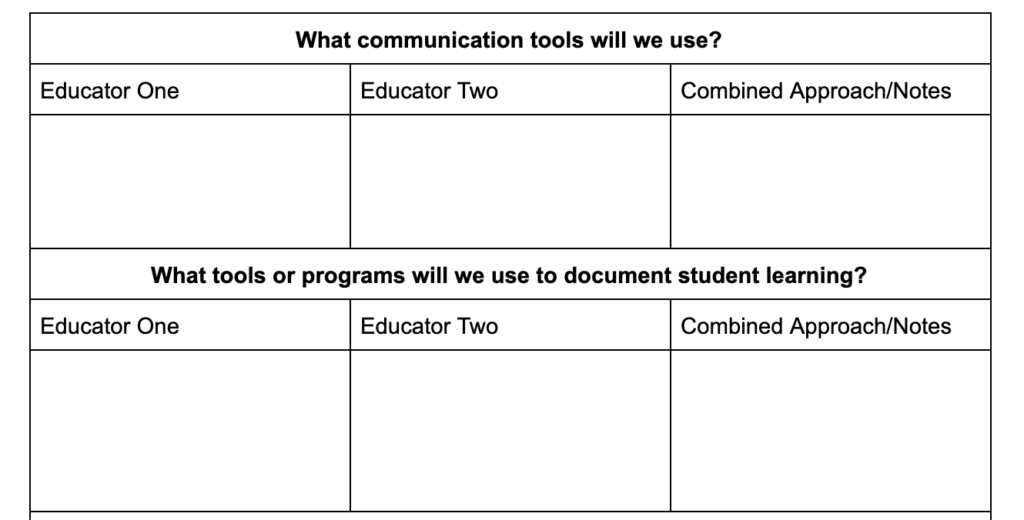Home » Proactive Conversations
Posted by:
Categories
Date
Often in the classroom, challenges arise in partnerships when there is uncertainty, confusion, or differing opinions on how to best support students. When we set up and engage in discussions about our philosophies BEFORE we begin teaching together it can support educators in proactively aligning their visions of teaching and education.
This is so important for new teaching teams, but this practice is one that also supports experienced teams in rethinking their practices together and reflecting on how things are done as a team.
The questions you choose to use can vary based on educator team, school community, classroom needs, and personal preference.
We have found in practice that if we both take time to think about and reflect on the question before discussing it together we have better clarity of our own beliefs and are able to better explain ourselves to each other.
After the school year begins, educators may find it helpful to reflect back on these questions and how they planned to move forward. Are things going as planned? What changes have you made? What would you like to alter or refocus on?
Tracy McMillian shares that, “The way you interact with relationships is what you get out of it”.
It is important to have a clear understanding of what you need before attempting to explain this with someone else.
Many of the questions that we share for you to discuss should be reflected on individually before together. This will support you in having clarity of your own values and experiences before connecting to negotiate and discuss how you will approach things as a team.

One question you may discuss together is, “What expectations do we have in each area of the classroom?”
When reflecting on our Building Area, we talk about things such as: how will we store materials, how will we support children in learning how to use the materials, how tall can children build, will we limit students, will we limit materials, what is our expectation for tidying?
Sometimes it may seem as though these are simple questions, but often times educators come into partnerships with different experiences and expectations. We don’t always break things down to think about how we can approach things collaboratively which eventually may lead to conflict or frustration within the team.
We have brainstormed a list of questions that you can choose to use in your discussions with your partner. We have also set up a template that can support educators in communicating some of these ideas digitally before the school year begins!
These questions are by no means inclusive of everything you may want to discuss, but starting out with a small selection of questions will support the conversations in getting started.
https://docs.google.com/document/d/1CxLC_65SgFf2l2u6iNSjOEWIqtWTcFDyVOw4GnZrvPA/edit?usp=sharing

“Coming together is beginning.
Keeping together is progress.
and working together is success”
-Henry Ford
Sign up for our mailing list if you would like to stay connected, learn about new ideas that can be implemented in your classroom, get access to exclusive material and offers.
We respect your privacy.
Copyright 2019 – PCE Connecting Learners. | Designed & Developed by BrandCo House.
